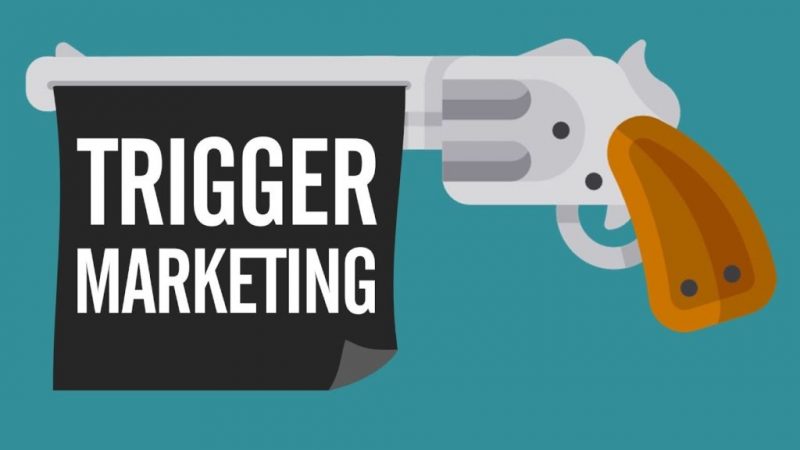June 8, 2018
Setting Behavioral Triggers is Critical for a Successful Campaign

Trigger words. These days they are often meant to imply something pejorative, but they are also an effective way to run a digital marketing campaign. The dream goal of any marketer is to deliver the exact message, at precisely the right time, to the right person, through a specific channel. In reality, it doesn’t always happen that way. That’s why watching behavior and setting triggers is so effective.
What is Trigger Marketing?
Fundamentally, the concept of behavioral-based trigger marketing is delivering a message to customers throughout a campaign at pre-planned points in time. However, these communications aren’t driven by dates. Rather, the customer subconsciously decides through prompts that are captured in data collection and analysis.

The best thing about trigger marketing is that when set up properly, the program can essentially run itself. It can easily form the foundation of any robust digital marketing plan. With the proper data analysis, and consistent “pulse checks,” a marketer can take full advantage of automation.
Why is Behavior-based Marketing Important?
Traditional marketing looked at the masses, but modern marketing examines the individual. If you market to a broad audience, people will notice and lose interest. Triggered marketing campaigns deliver results because they are based on an individual’s behavior and not that of an audience. It’s like the difference between Psychology and Sociology. One studies people, the other, groups.
Engagement
Triggered marketing also drives engagement. It proactively captures a consumer’s attention. What’s more engaging than feeling like a brand is speaking directly to you? When events are triggered by a consumer’s behavior, they assign that message personal value because they feel responsible for it.

Trust
Behavioral-based trigger marketing builds trust because it feels personal to the consumer. It also allows a brand to deliver messaging in real-time. If a consumer feels like you are meeting their needs before they even know they have them, it establishes incredible rapport.
ROI
Ultimately, trigger marketing brings in the cheese. In fact, triggered based email campaigns make up a low percentage of overall email volume, at around 2.6%, but are estimated to be responsible for more than 20% of email marketing revenue. That’s because people feel like the brand is paying attention, and that pays off.
The Future is Automation
As personalization becomes inextricable from marketing conversations, there must be a means to meet the needs of the masses. The answer lies in automation and the market is growing exponentially. In fact, the US Marketing Automation Software industry is a $3.3B market in 2017, growing 30%+ annually. Companies are starting to realize just how important it is to look at each consumer as an individual.

Automation happens in many forms and setting behavioral-based triggers is one of them. There are a variety of tools on the market, but your best bet is getting a robust, all-in-one tool like a customer relationship management system (CRM). A CRM can help you not only plan and perform the triggers you need, but also assist in analysis and store the refined social data.
Modern consumers crave attention and engagement. Personalization will always improve marketing results and one of the best ways of customizing your messaging is through triggers. Think of how happy people are when Netflix guesses their next favorite show. Same idea but apply it to your brand. You don’t have to be a mind reader but with a little extra elbow grease (and the right tools) you can pleasantly surprise a lot of people.







